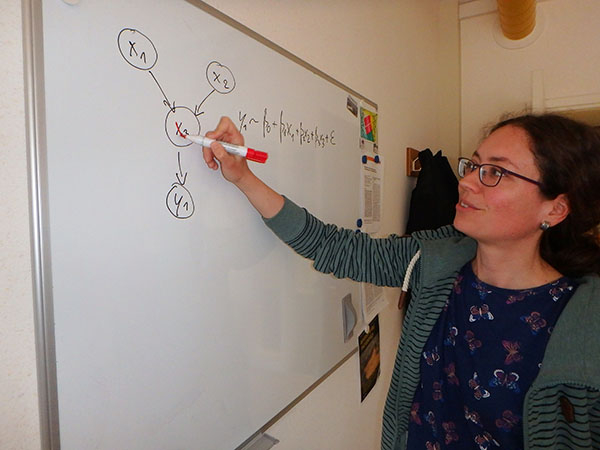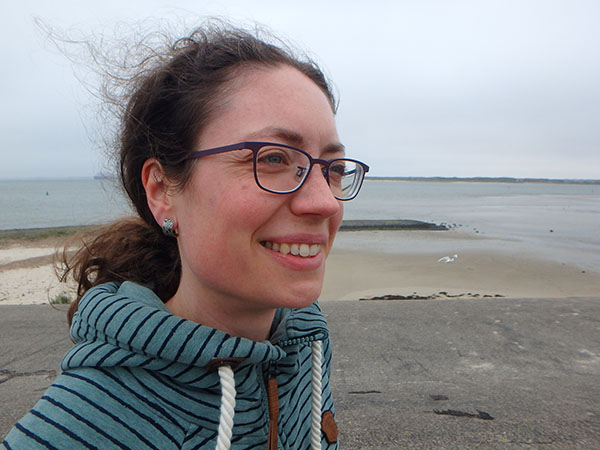WISE-award for Julia Engelmann to study marine microbial communities
Modeling marine microbial communities
At the base of the marine food web, microbes act both as primary producers and degraders of organic material. The organic matter they provide feeds the oceans and life on land. While we have seen a tremendous increase in knowledge about the diversity, genome composition and metabolic capabilities of microbial species living in the ocean, we still lack insights about how these communities work at a systems level. Because of the high complexity of many natural communities, inter-species interactions are difficult to study. My research evolves around how marine microbial communities are shaped, and which interactions are important for these communities. I make use of DNA sequencing and computational network modeling to learn about interactions between marine microbial species. Mathematical models and computational approaches have the potential to elucidate aspects of microbial communities that cannot easily be analyzed experimentally, and can provide hypotheses which can then be tested in the lab. Advantages of the causal network methodology I use are that direct and indirect dependencies can be distinguished and that it operates on observational data, that is the environment does not need to be perturbed to learn about species interactions and the effects of abiotic factors on the communities.

The WISE project
In the WISE project, we will sample coastal North Sea surface water communities and microbial communities in the Antarctic Ocean and approach the following research questions: What are the quantitative effects of temperature, salinity, acidification and oxygenation on interspecies interactions, species abundance and biomass production? How does climate change impact microbial species abundance and especially their interspecies interactions? How are the individual interactions mediated: via the provision of nutrients or energy substrates, competition for nutrients, signaling molecules or novel symbiotic interactions? We will then contrast these two very different environments, the Antarctic Ocean and the North Sea, to disentangle interactions which are specific to the ecosystem from general effects influencing both ecosystems.
This research will lead to a better understanding of the importance of species interactions in coastal marine microbial communities heavily influenced by humans, such as the North Sea, and in a very pristine environment, the Antarctic ocean. A better functional understanding of marine microbial communities will allow to assess potential changes in the communities due to changing climate parameters, and their consequences on the biogeochemical cycles and consequently the marine food web. In addition, identifying important players and dynamics of the microbial community has potential to refine global carbon cycle models, leading to more precise predictions of our future oceans.

With a focus on guidance and the right facilities, the programme provides talented international and national researchers with a promising career path towards a tenured position. The tenure track positions target female researchers who have started their careers and obtained their PhD at least three years ago. They will submit a research proposal and indicate at which NWO institute they would like to work. Successful candidates will be offered a five-year tenure track position at the institute of their choice. Following a successful tenure track, researchers fellows will receive a tenured position at the institute of their choice.